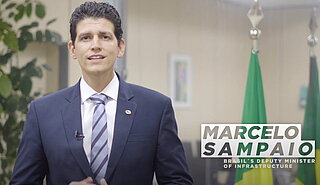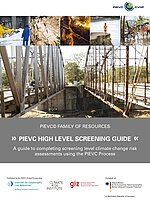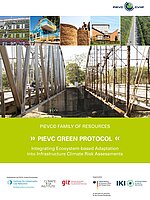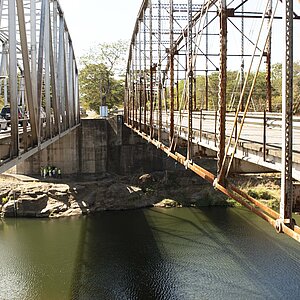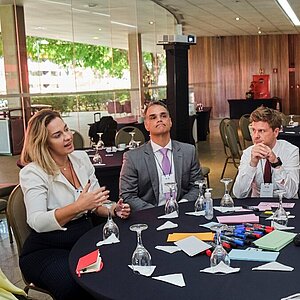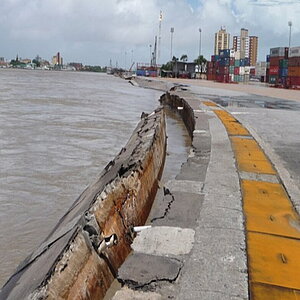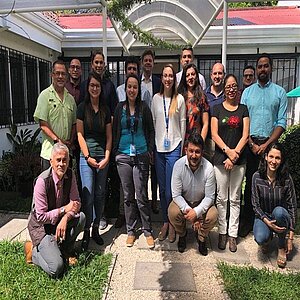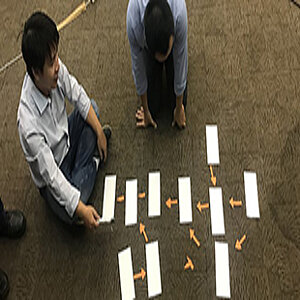Infrastructure investments in the context of climate change

The first CSI Global Forum presents practical examples from Hamburg and tailored climate information to support the planning and implementation of climate-resilient infrastructures around the world
The first CSI Global Forum was held in September 2017 in Hamburg, Germany, marking the beginning of regular dialogue between four countries around the world on the challenges and opportunities posed by climate-related infrastructure planning. The Forum was organised by the project Enhanced Climate Services for Infrastructure Investment (CSI) which was launched in early 2017. The CSI Global Forum aims to strengthen South-South cooperation and disseminate advisory approaches, methods and strategies for adapting infrastructure to climate change. With this objective in mind, the project partners, including providers, developers and users of climate information and climate products, met with experts from Hamburg authorities and climate service providers under the motto ‘learning with Hamburg’.
In the partner countries in Latin America, Africa and South-East Asia, climate change has already created an urgent need to systematically incorporate the impacts of climate change into the adaptation of existing infrastructures and the significant upcoming investment in resilient infrastructure. Dialogue with the Hamburg authorities and a review of the results showed how appropriate solutions can be put into practice and what that challenges are. For example, the integration of operational and structural flood risk management into the residential infrastructure close to the port means that extreme flooding from storm surges, which is today still considered unlikely, will no longer cause much damage or loss. Thanks to the incorporation of design reserves, further adaptation measures can be integrated into the existing infrastructure quickly and efficiently, if necessary. In contrast, specific structural solutions aimed at managing the increasingly extreme precipitation in Hamburg in the future have only been developed on paper, but scarcely put into practice.
The examples from Hamburg also show that infrastructure planners need tailored climate information and climate products (known as climate services) that are provided via institutionalised cooperation networks in iterative development loops of providers and users. However, these networks have not been sufficiently developed and institutionalised in many countries, including Germany. This is where the CSI project comes into play: to ensure that climate information and climate products can be put to the best possible use in infrastructure planning, the CSI project works with the German Meteorological Service to advise the partner countries on developing personal, technical and institutional expertise and networks to increase the added value of climate data; starting with climate data processing through to the development of user-focused climate products and advisory services for infrastructure planning.
At the same time, CSI, together with its cooperation partner Engineers Canada, works on the development and application of methods to analyse the climate risk of infrastructures and incorporate these methods into planning processes and specifications. During pilot tests of the climate services, the actors involved acquire in-depth knowledge of the subject. The learning experience is enhanced by tailored training courses and further training for trainers.
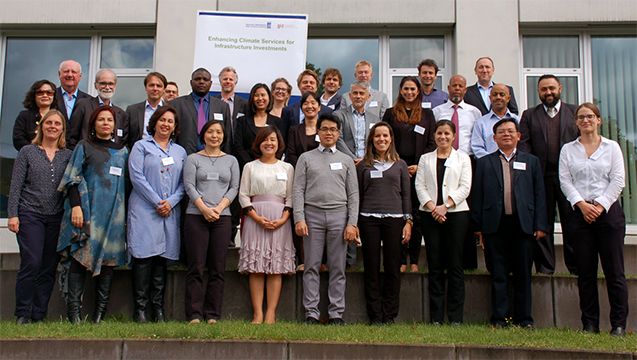
The CSI Global Forum will be used in the future to disseminate best practices developed as part of the project and to share lessons learned in the partner countries. The project is part of the International Climate Initiative (IKI) funded by the German Environment Ministry.
The link has been copied to the clipboard
Contact
IKI Office
Zukunft – Umwelt – Gesellschaft (ZUG) gGmbH
Stresemannstraße 69-71
10963 Berlin




